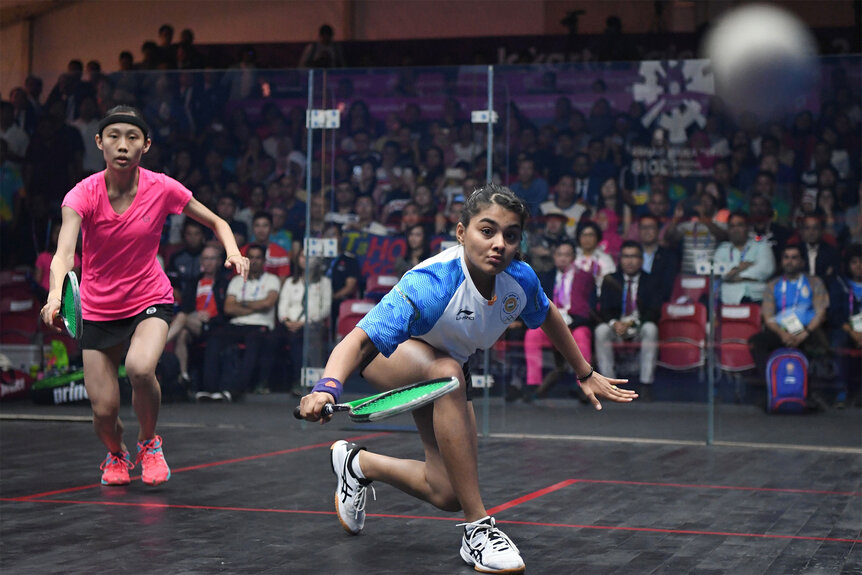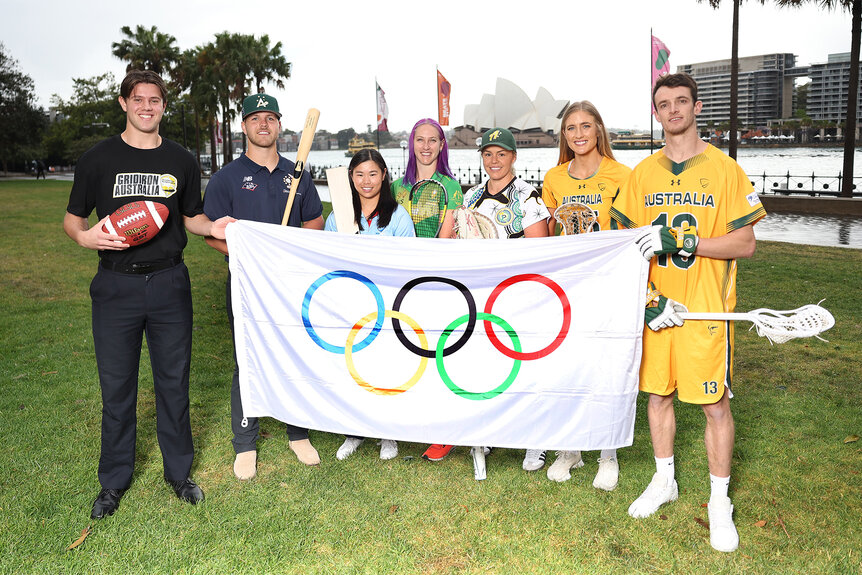Create a free profile to get unlimited access to exclusive show news, updates, and more!
Why Squash Will Make Its Olympic Debut in 2028 But Not this Year
Squash is set to smash its way into the Olympics, bringing fast-paced action and global excitement to Los Angeles 2028.
Despite its growing global popularity and numerous benefits, squash will not make its Olympic debut at 2024 Paris, with its official inclusion slated for the 2028 Games instead.
Squash, known for its fast-paced gameplay and global appeal, has long been vying for a spot on the Olympic stage, making its forthcoming debut a highly anticipated event among athletes and fans alike.
The decision reflects a complex interplay of factors, including logistical challenges, competition from other sports seeking inclusion, and the rigorous criteria set by the International Olympic Committee (IOC) for new sports. Played indoors on standardized courts that are widely available, it attracts participants of all ages and skill levels.
RELATED: Find Out Which New Sports Will Debut at the 2024 Paris Olympics
Whether you're a competitive athlete or a casual player, squash challenges you to anticipate your opponent's moves while honing your hand-eye coordination.
How to Play
Ready to step onto the court? Here's how to play.
Playing squash involves competing on a four-walled court using racquets to hit a small rubber ball against the front wall. The objective is to outmaneuver your opponent by strategically placing shots that they cannot return before the ball bounces twice or hits the tin.
Games are typically played to 11 points, with players alternating serves every two points. Rules dictate that players must hit the ball off the front wall and keep it above the tin and within court boundaries.
Strategy in squash revolves around using the entire court, varying shot types and pace to keep opponents off balance and maintaining control of rallies to score points. Attire for the sport includes non-marking indoor court shoes for stability and comfortable athletic clothing.
Fifth Time Is the Charm
Squash has struggled to gain Olympic status primarily due to its varying global popularity, fragmented governance in the past, specific infrastructure requirements, and stiff competition from other sports.
Squash had previously sought Olympic inclusion four times unsuccessfully before finally receiving approval from the International Olympic Committee during its 141st session in Mumbai. But that was only after the sport received approval by the 2028 Los Angeles to be among five new sports at the Games.
Alex Gough, CEO of the Professional Squash Association (PSA), likened squash's inclusion in 2028 Los Angeles to collaboration and ambition. During the Olympic bidding processes, the PSA faced evolving challenges.
"When we got into the bidding process for Rio 2016, which was in 2009, it was the first time I was involved with the PSA," Gough told Inside the Games. "It felt that time round that, whilst everyone wanted to do it, it was very last minute, you know, 'We’ve got to get this together, we’ve got to get that together."
Gough, reflecting on these experiences, highlighted how squash found itself navigating changes in Olympic criteria and competition dynamics, often feeling comparably placed against traditional sports.
"And then when we tried for the Tokyo 2020 Games, we had the situation where weightlifting was taken out. Then it was put back in. And then the decision time was changed from seven years beforehand to five years and the IOC wanted to put in things like surfing and skateboarding and things seemed a lot more directly focused on new things and trying to attract a new audience," Gough said.
RELATED: Pro Skateboarder Nyjah Huston Hopes to Inspire Kids to Chase "Their Dreams" at the Olympics
Squash has been actively seeking to expand its audience, particularly among younger demographics, which became a pivotal factor in its bid for inclusion at 2028 Los Angeles. With initiatives aimed at attracting a broader base of participants and spectators, Gough's strategic focus played a role in the decision of inclusion.
"I think the main issue for squash during that period of time was probably that we were much more comparable to tennis, and table tennis, and badminton rather than surfing and skateboarding, so we were almost in the wrong race at that point."
Looking ahead to the Los Angeles 2028 bid process, Gough expressed a positive outlook, noting it represented a significant shift in transparency.
"The process with LA 2028 felt like the most transparent and just the best process we had been through," Gough claimed. "Even if we hadn’t have got in, we would have felt like we had been given a really good, fair crack at it.
Following the successful bid for inclusion, Gough emphasized the importance of sustaining squash's presence in future Olympic Games. He underscored the need for continued efforts to maintain visibility and relevance within the Olympic movement, aiming to solidify squash as a permanent fixture on the global sports stage.
"We are already looking at what we have to do to stay in the Olympics — you’d like to think it is easier staying in than getting in, but we won’t be taking anything for granted."
Don't Miss
Watch live coverage of the Opening Ceremony on Friday, July 26, on NBC and Peacock beginning at 12 p.m. ET. Telemundo will provide Spanish-language coverage beginning at 1 p.m. ET. Primetime coverage starts at 7:30 p.m. ET/PT on NBC and Peacock.





















